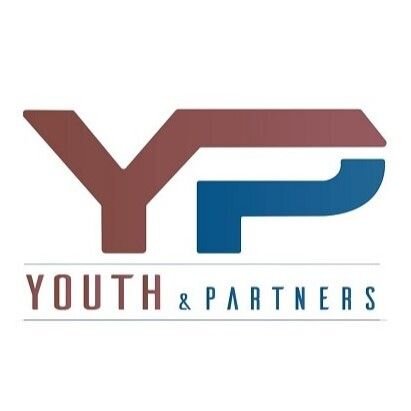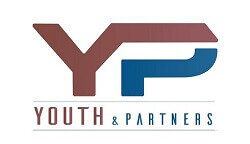Best Real Estate Lawyers in Vinh Phuc
Share your needs with us, get contacted by law firms.
Free. Takes 2 min.
Free Guide to Hiring a Real Estate Lawyer
List of the best lawyers in Vinh Phuc, Vietnam
Vietnam Real Estate Legal Questions answered by Lawyers
Browse our 1 legal question about Real Estate in Vietnam and read the lawyer answers, or ask your own questions for free.
- Illegal Eviction
- May I please request legal representation. Location, Da Nang
-
Lawyer answer by Law Plus
Dear Client, Thank you for reaching out to LawPlus regarding your request for legal representation in Da Nang. To better assist you, could you please provide us with more details about the matter you need support with? It would also...
Read full answer
Vietnam Real Estate Legal Articles
Browse our 2 legal articles about Real Estate in Vietnam written by expert lawyers.
- Buying an Apartment in Vietnam? New 5% Deposit Cap
- From August 2024, the new Law on Real Estate Business in Vietnam caps any pre-contract deposit for off-plan homes at 5% of the selling price until you sign the Sale & Purchase Agreement (SPA). Developers can no longer legally demand large "reservation", "capital contribution", or "investment cooperation" payments before the... Read more →
- Overseas Vietnamese Land Ownership in Vietnam: A Guide
- From 1 January 2025, Viet Kieu who hold a valid Vietnamese passport have land use rights in Vietnam on the same basis as domestic citizens, under the 2024 Land Law. Viet Kieu with Vietnamese nationality can now buy land plots and landed houses (with land use rights), not only apartments... Read more →
About Real Estate Law in Vinh Phuc, Vietnam
Vinh Phuc is a fast-developing province in northern Vietnam, situated close to Hanoi. Over the past decade, Vinh Phuc has experienced significant growth, particularly in its real estate sector. The region is home to a mix of urbanization, industrial zones, and residential developments, making real estate law especially relevant for both individuals and businesses. Real estate laws in Vinh Phuc are governed by national Vietnamese laws with certain local administrative guidelines and procedures. Property transactions, land use rights, leasing, and construction activities are all closely regulated to ensure transparency and legal compliance.
Why You May Need a Lawyer
Navigating real estate in Vinh Phuc can be complex, whether you are buying, selling, leasing, or inheriting property. Some common situations where legal help is essential include:
- Transferring land use rights or ownership of property
- Drafting and reviewing purchase agreements or lease contracts
- Reconciling land disputes or handling unclear property boundaries
- Dealing with zoning, land use, or construction permit issues
- Managing inheritance and succession of properties
- Registering property with local authorities
- Resolving issues related to compensation for land clearance or resettlement
- Negotiating and documenting joint ventures or investment projects
A qualified lawyer can ensure your rights and interests are protected, guide you through local procedures, and help avoid costly legal mistakes.
Local Laws Overview
Real estate law in Vinh Phuc follows the national framework set by the Land Law 2013, the Law on Real Estate Business 2014, and the Law on Housing 2014, along with their subsequent amendments. Key aspects include:
- Land Use Rights: In Vietnam, the State owns all land. Individuals and organizations can be granted land use rights (LUR), which can be transferred, leased, inherited, or mortgaged under certain conditions.
- Ownership Certificates: The official document certifying land use rights and ownership of assets attached to the land (such as houses).
- Transaction Registration: All real estate transactions, including transfers, sales, or leases lasting over six months, must be notarized and registered at the Provincial Land Registration Office or community-level authorities.
- Foreign Ownership: Foreign individuals and companies have some rights to buy and own certain types of property, mostly condominiums and specific projects, subject to legal restrictions.
- Dispute Resolution: Disputes are typically resolved via negotiation, mediation, or through local People’s Committees and courts.
- Taxes and Fees: Buyers and sellers may be subject to personal income tax, registration fees, and other associated costs.
- Inheritance: Inheritance of real estate is subject to Vietnamese law and requires proper documentation and possible approval from local authorities.
Frequently Asked Questions
Can foreigners buy property in Vinh Phuc?
Foreigners can purchase and own certain types of property such as condominiums and some housing projects, but land ownership is not allowed. They can have land use rights for a limited period, subject to Vietnamese law.
What documents are required to buy a house in Vinh Phuc?
You will need the land use rights certificate (also called the “red book”), a sale and purchase contract, personal identification documents, and proof of payment. The transaction should be notarized and registered with local authorities.
How do I check if a property has a valid land use right certificate?
Request to see the original certificate and verify the details at the local Land Registration Office or with the communal-level People’s Committee where the property is located.
What taxes or fees do I have to pay when buying property?
Common fees include registration fees, personal income tax (usually deducted from the seller’s proceeds), notarization fees, and administrative charges as determined by local authorities.
How are real estate disputes resolved?
Disputes can be resolved through direct negotiation, mediation by local authorities, or through the civil court system in Vinh Phuc.
Can I mortgage my land use rights?
Yes, land use rights can be mortgaged at financial institutions if the land use rights are recognized and there are no disputes or restrictions attached to the property.
What is the process for transferring land to a family member?
You must prepare a land transfer agreement, have it notarized, and then submit the documents for registration at the Land Registration Office. Taxes and fees may apply.
Are there restrictions on land or house construction?
Yes, construction activities must comply with local zoning laws, planning regulations, and require permits from local authorities. Illegal construction can result in fines or demolition orders.
How do I lease commercial property in Vinh Phuc?
Leasing commercial property requires a written contract, notarization, and registration with the local Land Registration Office. It is important to review the conditions and permitted uses of the property.
What happens to property when the owner dies?
Property inheritance follows the laws of succession in Vietnam. Heirs must apply for inheritance recognition, provide proof of relationship, and register the change with local authorities.
Additional Resources
If you need more information or assistance regarding real estate in Vinh Phuc, consider reaching out to these helpful resources:
- The Department of Natural Resources and Environment of Vinh Phuc
- The Vinh Phuc Province Land Registration Office
- The People’s Committee at district or commune level
- Certified local notary offices
- Ministry of Construction (for regulations and guidance)
- Legal aid centers and local lawyers’ associations in Vinh Phuc
Next Steps
If you are considering buying, selling, leasing, or dealing with any aspect of real estate in Vinh Phuc, it is best to consult with a qualified lawyer who understands local procedures and national law. Start by gathering all relevant documents and details. Contact your local notary office or a reputable law firm for initial consultation. You can also approach governmental offices such as the Land Registration Office or Department of Natural Resources and Environment for official guidance. Taking early legal advice will help you avoid risks, ensure compliance, and protect your interests throughout any real estate transaction or dispute.
Lawzana helps you find the best lawyers and law firms in Vinh Phuc through a curated and pre-screened list of qualified legal professionals. Our platform offers rankings and detailed profiles of attorneys and law firms, allowing you to compare based on practice areas, including Real Estate, experience, and client feedback.
Each profile includes a description of the firm's areas of practice, client reviews, team members and partners, year of establishment, spoken languages, office locations, contact information, social media presence, and any published articles or resources. Most firms on our platform speak English and are experienced in both local and international legal matters.
Get a quote from top-rated law firms in Vinh Phuc, Vietnam — quickly, securely, and without unnecessary hassle.
Disclaimer:
The information provided on this page is for general informational purposes only and does not constitute legal advice. While we strive to ensure the accuracy and relevance of the content, legal information may change over time, and interpretations of the law can vary. You should always consult with a qualified legal professional for advice specific to your situation.
We disclaim all liability for actions taken or not taken based on the content of this page. If you believe any information is incorrect or outdated, please contact us, and we will review and update it where appropriate.
Browse real estate law firms by service in Vinh Phuc, Vietnam
Vinh Phuc, Vietnam Attorneys in related practice areas.









